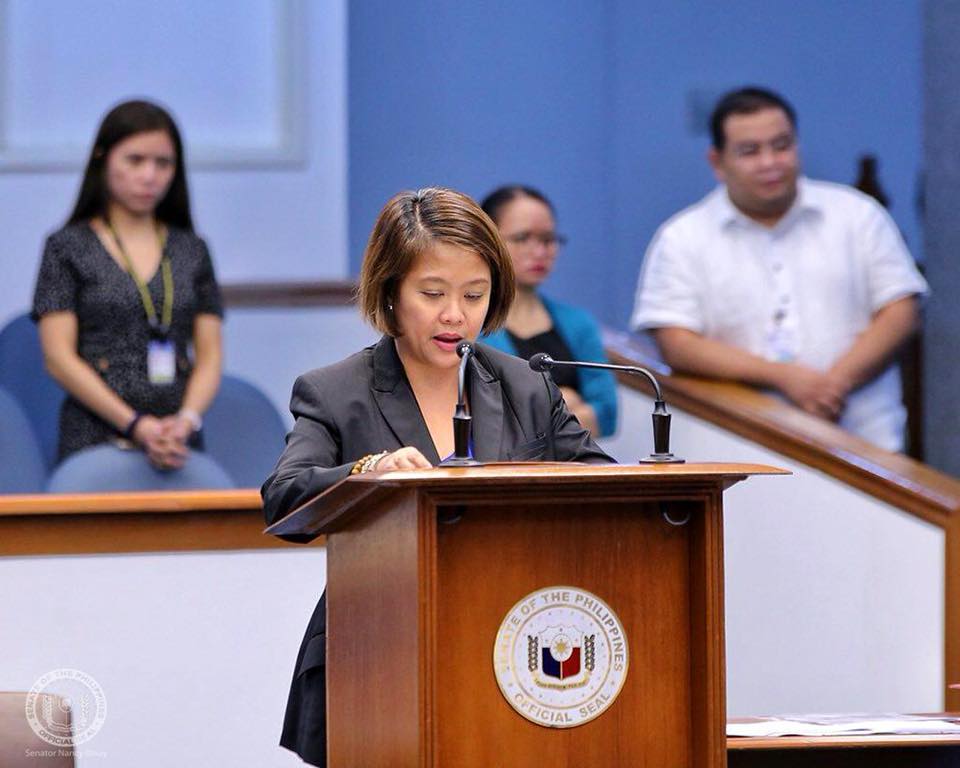News
Binay asks rice council: Where are the NFA rice?

FILE: Binay said in a statement that the dwindling supply of NFA rice forces consumers to buy expensive commercial rice. (Photo: Nancy Binay/Facebook)
MANILA, Philippines — Senator Nancy Binay on Sunday hit the shortage of NFA rice and questioned the efforts of the inter-agency National Food Authority Council in addressing the declining supply of affordable rice.
Binay said in a statement that the dwindling supply of NFA rice forces consumers to buy expensive commercial rice.
“It is true that there is enough supply of rice in the market but we are running out of NFA rice,” Binay said in mix Filipino and English.
“Because of the shortage of NFA rice in the market, our countrymen were forced to buy expensive rice,” she added.
Binay noted that prices of regular and well-milled rice are up by one to three pesos per kilo in six regional centers including Kidapawan City, Naga City, and the National Capital Region, according to a report from the Philippine Statistics Authority (PSA).
The lady senator said that the agency should serve its mandate of ensuring the food security by guaranteeing the selling of more affordable rice although it cannot control the prices of commercial rice.
“It is part of the NFA’s job to ensure that there is enough and affordable rice for all especially now where our countrymen already feel the shortage of NFA rice,” Binay added.
At present, NFA sells rice at P27/kg and P32/kg, while commercial rice varieties of comparable quality are sold at P36/kg to P41/kg.
The lady senator also asked about the acceptance of the council to import 250,000 metric tons (MT) of rice despite the NFA already admitting its current rice buffer stock is good for only three days.
“The NFA already admitted that the buffer stock of NFA rice is good for only three days. What happened to the policy of the council requiring them at least 15-day buffer stock,” Binay said.
“The Council should not rely on mere projections and instead be flexible and sensitive to the needs on the ground,” she added.
The NFA is required to have at least 15-day buffer stock at any given time and 30-day buffer stock during the lean season, which usually starts in July until September.
Meanwhile, Binay also called on the NFA to show all suppliers who are given import permits under the minimum access volume (MAV) scheme.
“This is in the interest of transparency and to prevent issues like conflicts of interest and corruption,” the senator said.





















